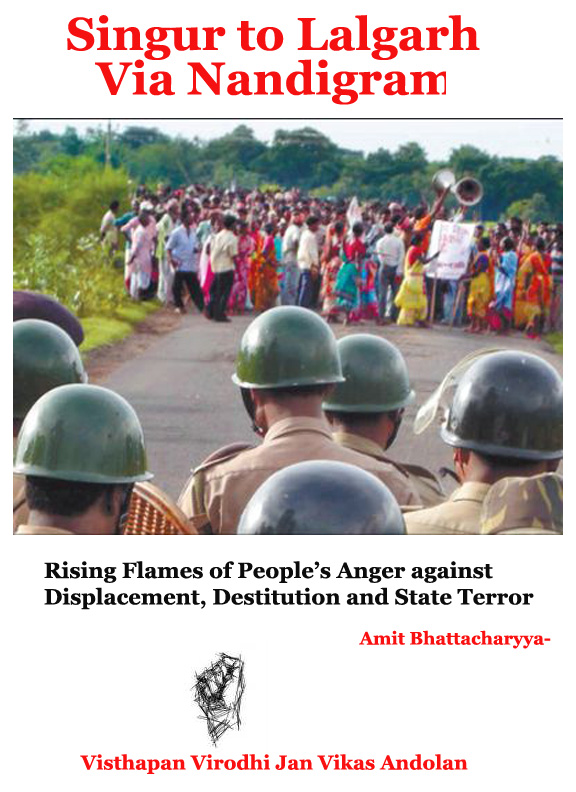By arzan sam wadia ⋅ September 24, 2009 ⋅ Email This Page ⋅ Print This Post ⋅ Post a comment
Kobad Ghandy’s recent arrest has made waves. After all, it’s not every day that one encounters a Naxal leader who hails from an affluent Parsi family, has studied in some of India’s best educational institutions and also done a CA from London. Despite his unusual background, he became a leading Naxal ideologue. In an exclusive interview a few days before his arrest, he spoke of the reasons for the recent surge of Naxalism across the country.
The Bastar region of Chhattisgarh is emerging as a Maoist bastion, and you seem to be giving extra emphasis on schools there?
Not schools but education. We are trying to give basic education through Mobile Academic Schools (MAS). Teaching basic sciences, mathematics and indigenous languages. Teams involved in the process are specialising in designing courses for the people who are backward, so that they can learn faster.
We are taking extra care to improve health facilities, as well. For example, wherever we work, we have told the tribals to boil drinking water. It has reduced diseases & death by 50%. Even independent NGOs have said so. Child mortality decreased because we have managed to empower women to an extent. The level of under-development in Bastar and all these areas is worse than, as some indicators suggest, sub-Saharan Africa.
Are you saying, you are not killers but benefactors?
Yes. But we are defined by the Prime Minister as the deadliest virus….(laughs)
Why do you think so?
We have a clear-cut definition of development. We think society is in a semi-feudal, semi-colonial state and there is a need to democratize it. The first step is to distribute land to the tiller. So in plain words, our fight is against land grab and exploitation of poor, especially focussing rural India.
Is that why you have managed to consolidate so strongly in Chhattisgarh?
One important reason we have managed to consolidate is because we talk about dignity of work. For example, villagers in Bastar collect the tendu-patta leafs to make local cigarettes or bidis. This bidi industry runs into billions of dollars. But the daily wage of these tribals …. was less than Rs 10 a day, before we came to Chhattisgarh. That is far less than the daily wage defined by even the government of India. We have forced these contractors to increase this daily wage — we have managed to push it up by three to four times. That is one reason why people like us.
But you have proper military wings?
I can’t tell you much about that. I don’t deal with that and don’t even know their members.
You are talking about development.
Will you be open to the idea — if government extends development to these areas?
Why not? We have not opposed some developmental works in Bastar. For example, we did not oppose building of some schools in Bastar. But if they build schools to convert those to army barracks — which India always did in various places — we will oppose it.
So you will do politics on the basis of guns?
Guns is a non-issue. I can tell you with absolute certainty that some villages of Uttar Pradesh or Bihar have got more guns than the entire Maoist force in the country. What the government or some section fears is the ideology, communism and the society we seek to build up. So we are projected as criminals.
Do you think it is possible to hold on to your bastions in the face of the offensive against you?
It’s a difficult battle. But with capitalism and the government colliding with each other — with American economy going into recession and increase of exploitation — we do hope to consolidate.
So the Naxals will never participate in mainstream politics?
No. Because we believe, a democracy which respects people cannot be established in this country under the given system.
 KOLKATA: The banned CPI (Maoist), which is leading a movement in Lalgarh and the entire Jangalmahal zone for the past one year, has put up three
KOLKATA: The banned CPI (Maoist), which is leading a movement in Lalgarh and the entire Jangalmahal zone for the past one year, has put up three
























 COMRADE: Human Rights Advocate P A Sebastian, a friend of Kobad Ghandy.
COMRADE: Human Rights Advocate P A Sebastian, a friend of Kobad Ghandy.  REVOLUTIONARIES: Advocate Susan Gonsalves with husband Vernon
REVOLUTIONARIES: Advocate Susan Gonsalves with husband Vernon Daipayan Halder Date: 2009-09-24 Place: Delhi
Daipayan Halder Date: 2009-09-24 Place: Delhi The arrest of Kobad Ghandy has sent a shock wave nationwide. What was the London- educated son of an ice-cream magnate doing in the top echelons of the Communist Party of India ( Maoist)? Indeed, a look at the leadership of the Naxalite movement today does make Ghandy appear a little out of place.
The arrest of Kobad Ghandy has sent a shock wave nationwide. What was the London- educated son of an ice-cream magnate doing in the top echelons of the Communist Party of India ( Maoist)? Indeed, a look at the leadership of the Naxalite movement today does make Ghandy appear a little out of place.